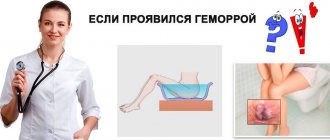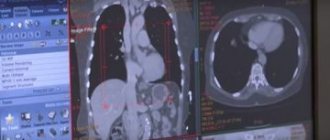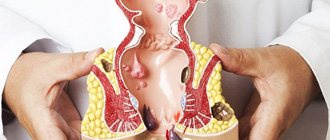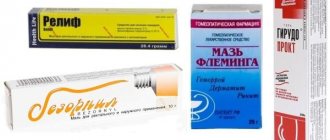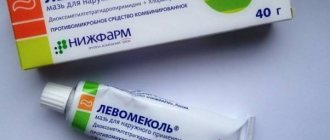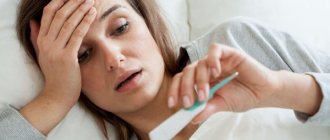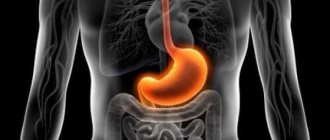Why do hemorrhoids appear?
The disease develops as a result of circulatory problems. The anal canal contains many arteries, veins, and blood vessels called sinusoids.
The latter, unlike veins, do not have muscle tissue in the walls, and are called hemorrhoidal plexus. They are located in loose connective tissue, are less protected and deform more quickly when blood pressure rises.
Hemorrhoidal tissue located between the mucous membrane of the anal canal and the internal sphincter (a circular muscular layer that holds feces) is heterogeneous. The non-vascular part consists of transitional epithelium, connective tissue, and Treitz muscles. The latter are responsible for the distensibility of hemorrhoidal veins. Deterioration of the Treitz muscles is considered one of the most important pathogenetic factors in the formation of hemorrhoids.
What contributes to the development of the disease
Paradoxically, the modern pace of life contributes to the increase in the prevalence of pathology. Most men do not even imagine that habitual actions can cause pathological changes in the veins in the anal area.
Factors contributing to the development of the disease:
- Forced prolonged sitting: at the computer, driving a car.
- Poor nutrition, abuse of fatty, spicy foods, alcohol.
- Frequent constipation and chronic diarrhea.
- Sitting on the toilet for a long time, for example, with a book or smartphone.
- Intense physical activity, heavy lifting.
- Age-related changes in the morphology of vascular walls.
People with hereditary or acquired venous circulation disorders are at risk.
We recommend reading:
How to remove hemorrhoids: symptoms and treatment of external and internal nodes
https://youtu.be/WiIQ7o-w5w4
The first signs of hemorrhoids in men
Hemorrhoids are classified into internal and external, acute and chronic. Each species differs symptomatically. In most cases, the clinical picture of the initial stages of hemorrhoids is weak or absent. This is the main reason for untimely consultation with a doctor and the transition of the pathology to a chronic form.
Characteristic symptoms that cannot be ignored are observed in the second stage:
- discomfort, itching in the anal area, especially after bowel movements;
- feeling of pressure in the anus;
- painful bowel movements;
- detection of traces of mucus and blood after bowel movements;
- after prolonged sitting there is a sensation of a foreign body in the anus.
If at least one of the signs appears, it is recommended to consult a doctor.
How to treat hemorrhoids without bleeding
In the initial stage, the disease is successfully treated with medications - tablets, ointments, suppositories. They alleviate symptoms and consolidate the effect of treatment with home procedures (baths, douching, compresses). The main task of any therapeutic regimen is to restore blood supply, prevent the development of nodes and blood clots, relieve pain and inflammation, and heal wounds and cracks. The possibilities of medicines are multivariate:
- Tablets are the basis of adequate treatment; hemorrhoids cannot be completely cured without pharmaceuticals. Weak dilated veins are helped by venotonics (Detralex, Phlebodia, Troxevasin). They increase their elasticity, control blood flow, and relieve congestion.
- NSAIDs - inflamed nodes are treated with ointments and suppositories: non-hormonal (Relief, Levomikol, Vishnevsky ointment, based on indomethacin) or hormonal, with hydrocortisone.
- Anesthetics. Systemic medications (Nise, Pentalgin, Ibuklin) or local ones, such as suppositories based on novocaine, belladonna, are suitable for pain relief.
- Antiseptics with a bioactive complex of natural ingredients prevent the spread of infection. Locally disinfect with suppositories with sea buckthorn, ichthyol, calendula, propolis.
- Wounds are healed by suppositories with methyluracil, sea buckthorn oil, and shark liver oil, which stimulate regenerative processes.
- If bleeding does occur, it will be stopped with hemostatic agents: Vikasol tablets, suppositories with adrenaline. Relief, Natalsid, Procto-Glivenol restore tissue and constrict blood vessels.
- Laxatives will reduce pressure on blood vessels from an overloaded intestine and improve blood flow.
Conservative treatment of hemorrhoids is a long process: the course of taking pills is designed to last several weeks, or even months. At the same time, it is important to maintain contact with a doctor, even if the condition is stable, since untreated hemorrhoids are dangerous due to complications and transition to a chronic form, which is much more difficult to treat.
Symptoms of external hemorrhoids
External hemorrhoids are characterized by varicose veins located behind the dentate line of the rectum. The course of the pathology is painful, but despite this, men are in no hurry to seek help from a proctologist.
- intense pain that periodically subsides during remission;
- swelling, discomfort when walking for a long time;
- feeling of incomplete emptying;
- prolapse of nodes during defecation.
If the nodes are large, hygiene problems arise. The accumulation of feces and sweat causes irritation and increases the risk of bacterial infection.
Differences from the external form of the disease
The main feature of external or external hemorrhoids is the nodes protruding from the anus. At the first stage of the disease, they are practically invisible on the surface, but can be felt when a finger is inserted into the rectum.
The second stage of hemorrhoids is characterized by the gradual growth of cones and their emergence to the surface. The nodes protrude during bowel movements with external hemorrhoids, and then retract inward on their own.
As the size of the cones increases, their spontaneous retraction becomes impossible; the falling fragments have to be set manually.
With advanced hemorrhoids, the nodes fall out even with slight stress : coughing, sneezing, lifting heavy objects or sudden movement. Weakened muscles cannot hold them, so it becomes increasingly difficult to straighten the lumps.
Once on the surface, the nodes rub against the skin and underwear, small painful tears appear on them, prone to suppuration and inflammation. Open wounds become a breeding ground for pathogenic bacteria, and the patient's condition worsens.
Now that you know about the differences between the external and internal forms of the disease, let's move on to another equally important topic: “Hemorrhoids came out - from what?”
Signs of internal hemorrhoids in men
Internal hemorrhoids are varicose veins located in the rectum under the mucous membrane. It usually occurs without pain, since there are few nerve endings at the site of internal hemorrhoids. Internal hemorrhoids are usually painful due to thrombosis of the nodes.
Symptoms include:
- unpleasant sensations of irritation, tingling after visiting the toilet;
- a feeling of heaviness, the presence of a foreign body in the rectum;
- fecal incontinence;
- swelling and hyperemia of the anal area;
- mucous discharge mixed with blood.
Bleeding occurs more frequently and becomes intense, and anemia develops. Over time, vascular tone decreases, the ability to maintain the vascular network is lost, and the nodes move closer to the anus.
We recommend reading:
Why does blood appear in the stool of an adult: types, causes and what to do?
Types of hemorrhoids
There are several types of hemorrhoids in men.
- Internal hemorrhoids are the formation of hemorrhoids in the submucosal space of the rectum above the anal-rectal line. This line separates the rectal ampulla and the anal canal.
- External hemorrhoids are the formation of hemorrhoids under the skin, outside the rectal ampulla, below the anal-rectal line.
- Combined hemorrhoids, when the patient has a combination of both types.
The difference between the symptoms of hemorrhoids and prostatitis
In men, the hemorrhoidal plexus communicates with the reproductive and prostatic plexus, covering the lower part of the bladder and the base of the prostate gland. In inflammatory processes of the prostate, a number of symptoms are similar to those of hemorrhoids, including itching, pain, and sensations of pressure in the anus.
Prostatitis is a lesion (usually infectious) of the prostate gland; accordingly, the main clinical picture reflects the nature of the morphological changes in this organ.
With prostatitis, the functioning of the genitourinary system is disrupted. Characteristic symptoms are painful urination and sexual dysfunction. Hemorrhoids are not associated with urinary disorders and sexual dysfunction.
Why are hemorrhoids dangerous for men?
Lack of treatment leads to chronic pathology and complications. The most common complication is internal hemorrhoids. The nodes greatly enlarge, become denser, and pathological changes are accompanied by intense pain. Such signs indicate the development of acute thrombophlebitis.
With a progressive course, a number of severe pathological processes can develop:
- iron deficiency anemia caused by excessive bleeding;
- purulent metastases;
- paraproctitis;
- necrosis (tissue death) of nodes;
- sepsis.
Prolonged prolapse of hemorrhoidal cones leads to uncontrolled excretion of feces.
Traditional methods of treating the disease
The insidiousness of the disease is that its symptoms are similar to other pathologies such as benign and malignant tumors of the rectum, paraproctitis, endometriosis. Only a specialist can make an accurate diagnosis.
Treatment tactics are selected based on the clinical picture and stage of the pathology.
As a rule, complex treatment is carried out:
- Conservative therapy is aimed at restoring the functioning of the gastrointestinal tract and eliminating constipation. A diet with increased fluid and dietary fiber intake is prescribed.
- Pharmacotherapy helps relieve symptoms and prevent complications. The drugs are prescribed in preparation for operations and during the rehabilitation period after them.
- Minimally invasive surgery is used when conservative therapy is ineffective. Methods, including sclerotherapy, photocoagulation, ligation and others, are aimed at reducing the volume of nodes and bleeding.
- Surgical treatment is indicated in the final stages. Hemorrhoidectomy is considered the most effective treatment method.
We recommend reading:
Causes and treatment of bleeding from hemorrhoids: 4 methods and folk remedies to stop bleeding
The method is selected individually based on the clinical picture, the presence of contraindications, and the characteristics of the body.
What does treatment include?
After all the examinations, the doctor selects a treatment course for the patient.
Once diagnosed, hemorrhoids should be treated immediately. The doctor should consult the patient in detail about therapeutic measures. Depending on the type, stage and associated complications, the specialist selects ways to solve the problem, which may include treating external hemorrhoids in men with drugs and folk remedies. In extreme cases, the patient is prescribed surgery. After a course of therapy, mandatory prophylaxis and regular examinations throughout the year are recommended.
Drugs
During the period of exacerbation of hemorrhoids, drug treatment cannot be avoided. Drugs for hemorrhoids are prescribed exclusively at the initial stage, to eliminate pain and other symptoms. With primary symptoms, external hemorrhoids in men can be treated with ointments and gels. If a hemorrhoid comes out, the following medications are used:
- Vishnevsky ointment;
- gel "Hepatrombin";
- heparin ointment.
To strengthen the walls of blood vessels, you need to take tablets such as Venoruton and Troxevasin capsules orally. Phlebodia is also an equally effective medicine. Recently, pads for hemorrhoids have become in demand, as they help cure the disease by relieving inflammation and swelling. If the nodes are located inside the anus, then it is better to treat them with suppositories, which are inserted only after bowel movements. Examples of suppositories:
- "Proctoglivenol";
- "Gepazolone";
- "Betiol";
- "Relief Advance".
Lifestyle
A man's diet should include fruit.
To get rid of the problem once and for all, you need to reconsider your habits and lifestyle. It is important to remember that stage 2 hemorrhoids appear in men more often than in women, so the stronger sex should be more careful with this disease. The main thing to do is to establish nutrition. More foods containing fiber should be introduced into the diet of the patient (young man or adult man), and fatty foods should be excluded from the menu. Don't forget about your drinking regime. You need to drink up to 2 liters of water per day. Alcoholic drinks and smoking are taboos in the life of a man suffering from hemorrhoids. It is also worth regulating physical activity, protecting the body from overexertion and stressful situations. This will help protect against the development of an unpleasant disease.
Minimally invasive treatment
This group of methods is an intermediate remedy between drug therapy and surgery. It is prohibited to use such treatment for complications: anal fissures, bleeding, paraproctitis, nonspecific colitis. Types of minimally invasive therapy:
- infrared photocoagulation;
- sclerotherapy;
- latex ligation of internal hemorrhoids.
Surgery
An advanced stage of the disease can be operated on using the Longo method.
The third and fourth stages of treatment for hemorrhoids must be carried out using surgery. During the manipulation, cones are removed using the Longo method, as well as hemorrhoidectomy and the radio wave method. Each surgical intervention requires preliminary preparation and subsequent rehabilitation. At the beginning of the procedure, the patient is placed in an inpatient department; after discharge, therapy continues at home.
Traditional treatment
Using recipes from healers, hemorrhoids in men can be treated at home. However, you should not rely solely on this treatment option, since traditional medicine is an addition to the main therapy. Non-traditional remedies will help relieve burning, itching and have an antibacterial effect. It is impossible to completely eliminate the causes of inflammation of hemorrhoids without traditional treatment. In case of a severe attack of pain, it is recommended to use chamomile baths. To disinfect and improve intestinal function, lotions and aloe-based products are used. To strengthen the walls of blood vessels, the patient treats himself with potatoes, preparing rectal suppositories from it.
https://youtu.be/LKyVuKqcHg0
Treatment of hemorrhoids in men at home
Uncomplicated hemorrhoids can be treated with folk remedies. Alternative methods are quite varied. To eliminate the possibility of complications, their use should be discussed with your doctor first.
The most common effective folk remedies include:
- sitz baths with decoctions of various plants;
- cool compresses;
- microenemas with oils, herbal decoctions;
- homemade candles with natural oils and infusions of medicinal plants;
- ointments based on herbal extracts, honey, propolis.
Home remedies cause virtually no side effects, but require longer use compared to medications.
Prevention
Even when performing treatment at home, you should not forget about precautions and preventing relapse of the disease. After treatment, you need to adjust your diet, eliminating everything spicy and salty. Perform gymnastic exercises to disperse blood through the vessels. Reduce alcohol doses to 40 ml per day.
You will have to quit smoking forever - this is the main source of destruction of blood vessels and the development of the disease. It is better to replace toilet paper with washing, and tight clothes with spacious and loose clothes.
Treatment with folk remedies is possible, but only at the first stage of development. At home, you can prepare medicinal baths with potassium permanganate and drink decoctions to strengthen blood vessels.
The choice of therapeutic or surgical technique always remains with the attending proctologist. A specialist will always tell men how to treat internal hemorrhoids, knowing the characteristics of the patient and having diagnostic tests on hand.
THERE ARE CONTRAINDICATIONS CONSULTATION WITH YOUR DOCTOR IS REQUIRED
Author of the article Alexey Alexandrovich Egorov, proctologist
Hemorrhoids without blood often represent an early stage of the disease when there are few to no symptoms. The name itself carries the main symptom - from Greek it is translated as “bleeding”. Painless hemorrhoids are dangerous because without clinical manifestations the onset of pathology can be missed. If the main symptoms are not expressed, the disease is detected late, at the stage of complications.
Preventive measures
Hemorrhoids are a recurrent disease.
Prevention measures should be applied even after successful treatment:
- Enriching the diet with foods high in fiber.
- Drinking large amounts of liquid.
- Avoiding prolonged sitting.
- Minimizing, or better yet eliminating, heavy physical activity.
- Mandatory daily walking and exercise.
Hemorrhoids can occur in any man, regardless of age and social status. Delaying a visit to the doctor makes the problem worse. The pathology can be successfully treated at any stage, but with timely treatment, therapy is much more effective and faster.
Causes and pathogenesis
It is generally accepted that hemorrhoids in men occur due to low mobility. The risk group includes guys over 25 years old who have a sedentary lifestyle. These could be office workers, drivers and truckers, IT workers. In addition, hemorrhoids often appear in men who have heavy physical work associated with lifting heavy objects and carrying loads. Bodybuilders and athletes who regularly include heavy loads in their everyday lives may, over time, notice the initial signs of the development of the disease. The symptoms cause a lot of trouble. In addition to the fact that the patient experiences burning and itching, psychological discomfort appears against this background, the man becomes withdrawn and looks unhappy.
The main causes of hemorrhoids in mature men and young boys:
- smoking and alcohol abuse;
- unbalanced diet;
- gastrointestinal problems;
- excessive body weight;
- constant lifting of heavy objects;
- inactivity;
- inflammatory diseases of the prostate and bladder;
- anal sex, which provokes the appearance of anal fissures and leads to hemorrhoids.
